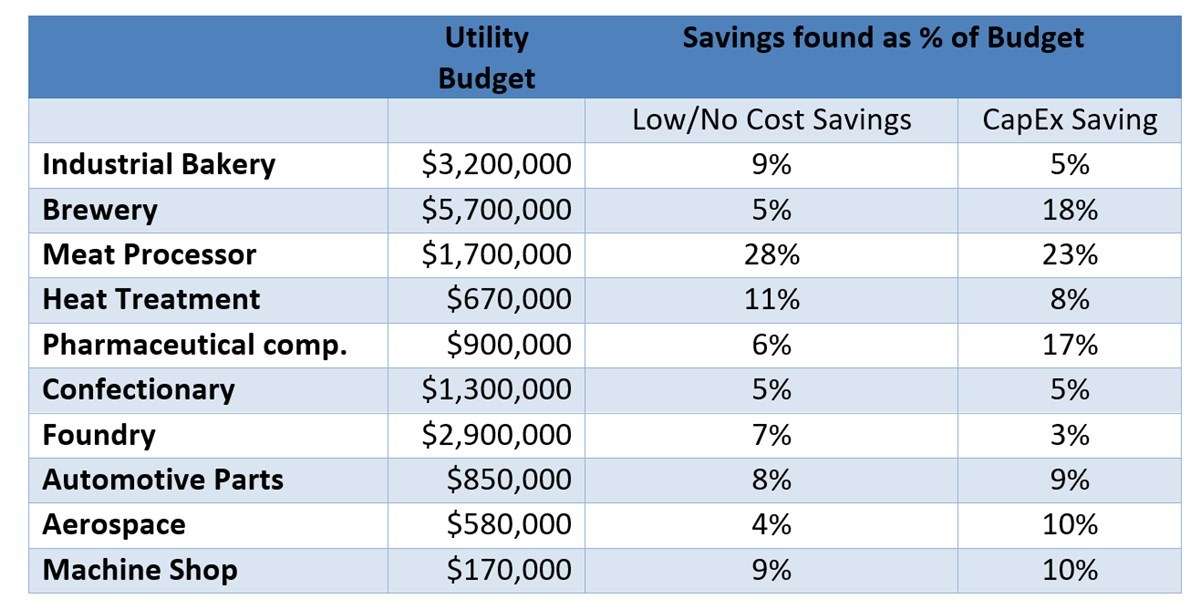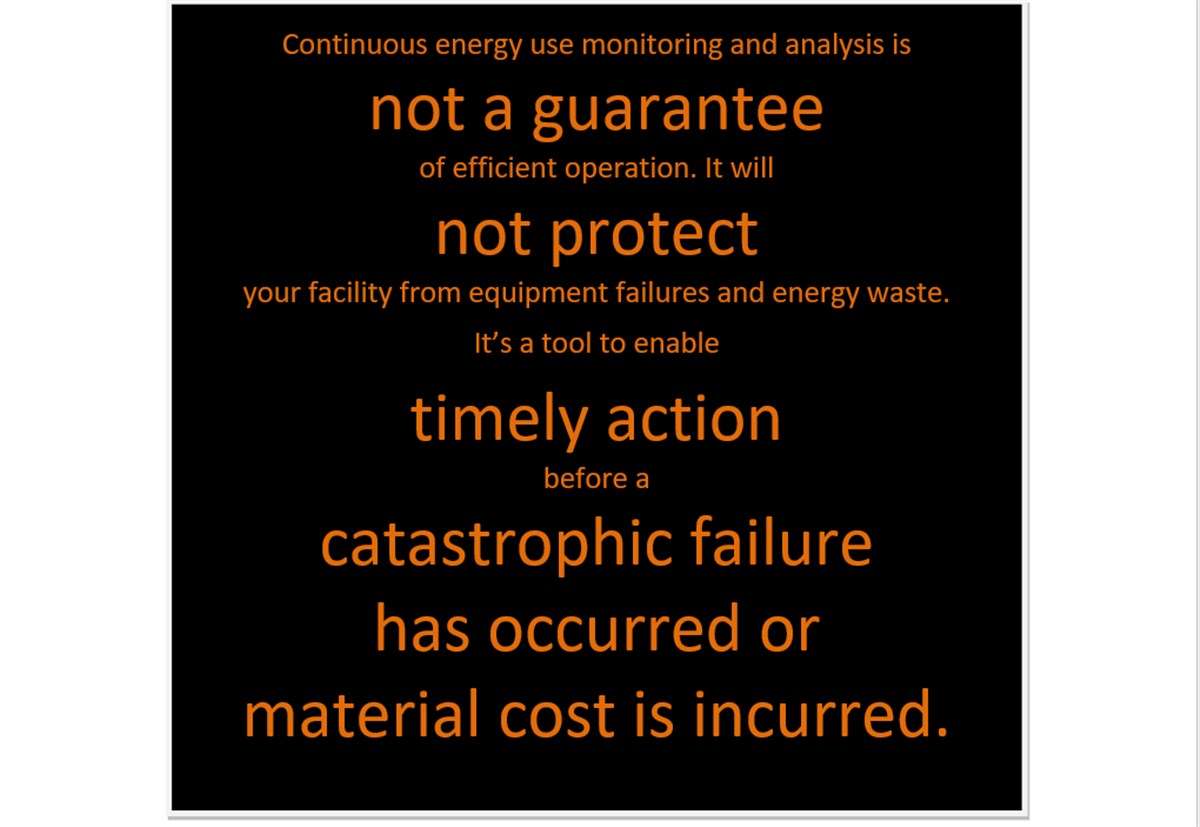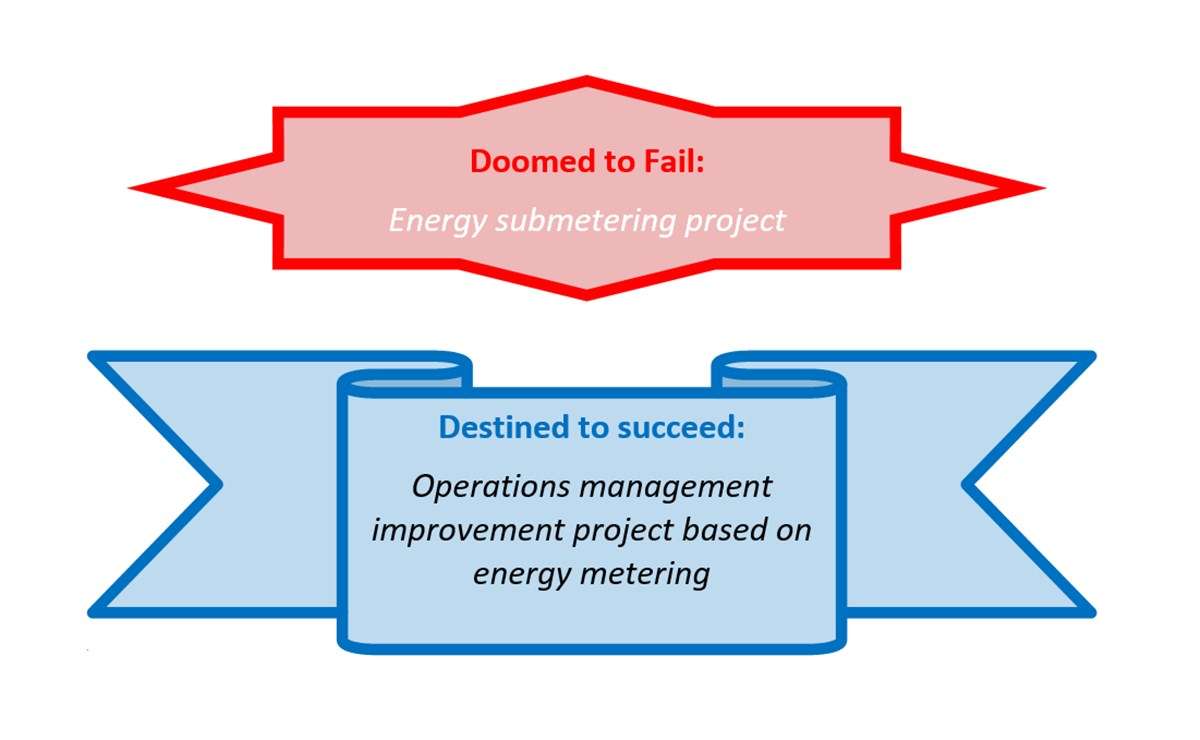I often hear that “Energy audit costs money, but saves no energy”. This is true and not true at the same time. Here is why: Any experienced plant manager knows that their plant wastes utilities.
No shame in this. Every plant wastes energy.
Few plant managers know where exactly this waste occurs and even less know how much exactly it costs them. And now – the fun part: most plant managers are still convinced that waste is not material.
This just ain’t so.
A typical manufacturing plant wastes 50% of purchased utilities
On average across industries based on estimates of US Department of Energy and our experience:
- a US manufacturing plant wastes 50% of purchased utilities
- half of utility waste can be economically recovered (25% of total utility spend)
- half of recoverable utility waste can be recovered with a short payback (10-15% of total utility spend)
- half of short payback projects are no/low cost OPEX level ones (5-7% of total utility spend)
These are not just hypothetical considerations. These estimates are based on eal projects completed by our audit partner.

Do not get me wrong, most plant managers agree that energy waste is a concern … and keep postponing actions to address it. Talk is cheap. Action is what counts. Every time plant manager postpones an energy audit, they are not postponing the expense, they are committing to wasting utilities instead of committing to finding and eliminating this waste.
You can’t deal with something you do know, right? Energy audit provides answers.
Energy audit is not an expense
Energy audit has no payback, right? Why would CFO approve it?
Fee of a properly scoped energy audit can be recovered within the same year through savings. Audit is not even an additional expense, but a reallocation of funds within the budget. These monies are spent anyway.
Practical implication of the utility cost distribution above is that if energy audit fee is about 5% of annual energy spend, then it is not an expense, but a reallocation of funds from purchase of utilities to be wasted to an action against this waste. This is indeed hinges on a premise that plant manager acts on energy audit findings.
Utility waste is a choice. Action against utility waste is a choice too. Commitment to action is the key, no extra money is required.
Effectively the choice is either to keep overpaying for utilities year after year or to find waste, fix OPEX level issues, recover costs within the same year and reduce utility bill from the next year on. Next year savings can be applied to financing CAPEX level projects.
Eliminating utility waste does not require investment. It requires accurate accounting and diligence in implementation.







Leave A Comment